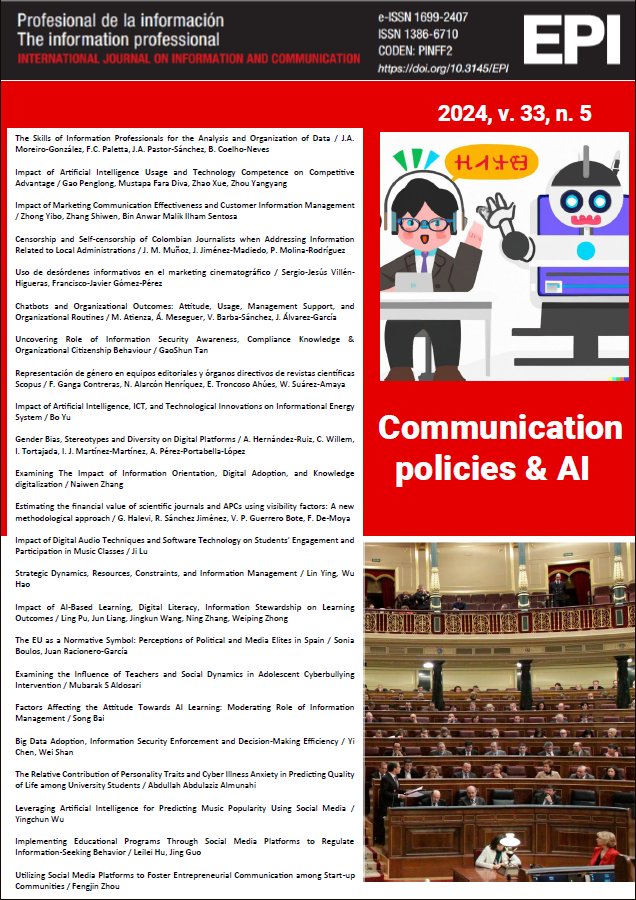Revolutionizing Educational Systems Through the Belt and Road Initiative: Integrating Bashu Culture and ProjectBased Learning Pedagogy
DOI:
https://doi.org/10.3145/epi.2024.ene.0523Keywords:
Belt and Road Initiative, Educational Informatics, Cultural Integration, Systems Theory, Project-Based Learning, Bashu CultureAbstract
The cultural inclusion of education systems is important to create cross-cultural understandings and to facilitate the integration of diverse identities when considering the context of the Belt and Road Initiative (BRI). This calls for the development of innovative informatics frameworks for supporting cultural interactions and long-term cooperation. Ultimately, there is no scaled model to introduce cultural diversity to the mainstream, notably for a community like the Bashu. This gap is addressed by this study in which Japanese Educational Informatics is integrated with Bashu culture, using PBL pedagogy. Adopting a mixed method approach, the study first quantitatively analyzes TIMSS 2019 data to demonstrate how informatics capacities can aid educational outcomes on environmental awareness and scientific literacy, followed by a qualitative analysis performed on policy reports with Japanese and Chinese Taipei policy documents, to highlight the effectiveness of informatics tools to bridge educational gaps and assist in cultural adaptation. Drawing upon Systems Theory, the research presents a framework to organize and share cultural knowledge via adaptive and inclusive education. The findings support that informatics can be used in aligning education with BRI, in promoting global cooperation, and in achieving preservation of the cultural heritage. Future work should explore how implementing these frameworks in other culturally marginalized areas may be used to enhance education
Downloads
Downloads
Published
How to Cite
Issue
Section
License
Copyright (c) 2025 Profesional de la información

This work is licensed under a Creative Commons Attribution 4.0 International License.
Dissemination conditions of the articles once they are published
Authors can freely disseminate their articles on websites, social networks and repositories
However, the following conditions must be respected:
- Only the editorial version should be made public. Please do not publish preprints, postprints or proofs.
- Along with this copy, a specific mention of the publication in which the text has appeared must be included, also adding a clickable link to the URL: http://www.profesionaldelainformacion.com
- Only the final editorial version should be made public. Please do not publish preprints, postprints or proofs.
- Along with that copy, a specific mention of the publication in which the text has appeared must be included, also adding a clickable link to the URL: http://revista.profesionaldelainformacion.com
Profesional de la información journal offers the articles in open access with a Creative Commons BY license.




